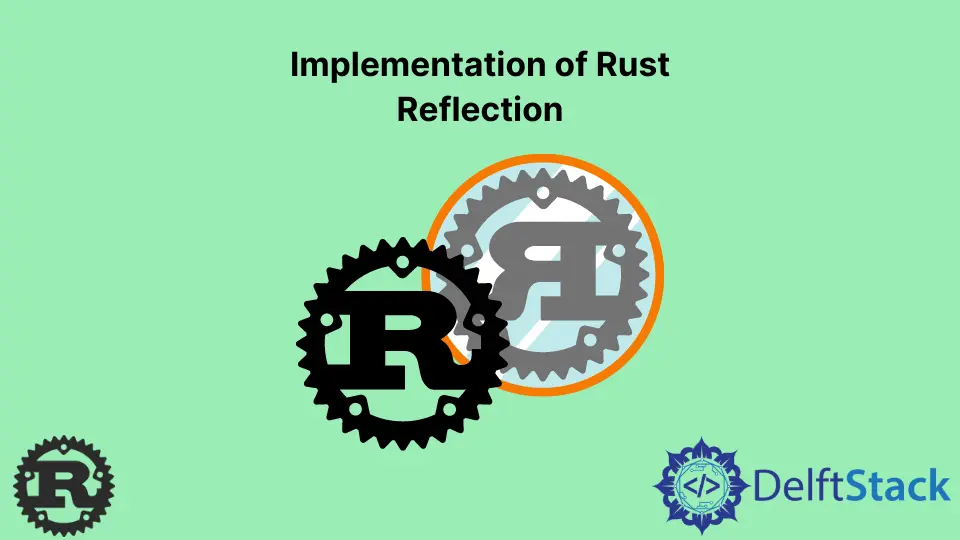How to Implement Rust Reflection
- Understanding Reflection in Rust
- Using Traits for Reflection
- Leveraging Macros for Reflection
- Using External Crates for Advanced Reflection
- Conclusion
- FAQ

Reflection is an intriguing concept in programming that allows a program to examine its own structure and behavior. It opens the door to dynamic features, enabling developers to create more flexible and adaptable applications. While Rust, a systems programming language known for its performance and safety, doesn’t have built-in reflection capabilities like some other languages, there are ways to implement reflection-like features in Rust.
In this article, we will explore how to harness the power of Rust reflection, discussing methods and providing clear examples. Whether you’re a seasoned Rust developer or just starting, this guide will help you understand and implement reflection in your projects.
Understanding Reflection in Rust
Before diving into how to implement reflection in Rust, it’s essential to grasp what reflection entails. In programming, reflection refers to the ability of a program to inspect and modify its own structure and behavior at runtime. This capability can be useful for various tasks, such as debugging, serialization, and dynamic method invocation.
Unlike languages like Python or Java, Rust is statically typed and does not provide built-in reflection capabilities. However, you can achieve similar functionality using traits, macros, and external crates. This article will highlight some of the most effective methods to implement reflection-like features in Rust.
Using Traits for Reflection
One of the primary ways to implement reflection in Rust is through the use of traits. Traits allow you to define shared behavior across different types. By defining a trait that includes methods for introspection, you can create a structure that mimics reflection.
Here’s an example of how to use traits for reflection in Rust:
trait Reflect {
fn type_name(&self) -> &'static str;
fn fields(&self) -> Vec<&'static str>;
}
struct Person {
name: String,
age: u32,
}
impl Reflect for Person {
fn type_name(&self) -> &'static str {
"Person"
}
fn fields(&self) -> Vec<&'static str> {
vec!["name", "age"]
}
}
fn main() {
let person = Person {
name: String::from("Alice"),
age: 30,
};
println!("Type: {}", person.type_name());
println!("Fields: {:?}", person.fields());
}
Output:
Type: Person
Fields: ["name", "age"]
In this example, we define a Reflect trait with two methods: type_name and fields. The Person struct implements this trait, allowing us to retrieve its type name and field names at runtime. This approach provides a simple yet effective way to achieve reflection-like capabilities in Rust.
Leveraging Macros for Reflection
Macros in Rust can also be a powerful tool for implementing reflection. By creating custom macros, you can generate code that provides introspection capabilities for your types. This method can significantly reduce boilerplate code and enhance maintainability.
Here’s how you can use macros to implement reflection in Rust:
macro_rules! reflect {
($name:ident, $($field:ident),*) => {
struct $name {
$(pub $field: String,)*
}
impl Reflect for $name {
fn type_name(&self) -> &'static str {
stringify!($name)
}
fn fields(&self) -> Vec<&'static str> {
vec![$(stringify!($field)),*]
}
}
};
}
reflect!(Car, make, model, year);
fn main() {
let car = Car {
make: String::from("Toyota"),
model: String::from("Corolla"),
year: String::from("2021"),
};
println!("Type: {}", car.type_name());
println!("Fields: {:?}", car.fields());
}
Output:
Type: Car
Fields: ["make", "model", "year"]
In this example, we define a macro called reflect that generates a struct along with its corresponding Reflect implementation. When we use the macro to create a Car struct, we can easily access its type name and field names. This approach not only simplifies the process but also ensures consistency across different types.
Using External Crates for Advanced Reflection
For more advanced reflection capabilities, you can utilize external crates such as serde and serde_json. These libraries provide powerful serialization and deserialization features that can mimic reflection by allowing you to inspect and manipulate data structures dynamically.
Here’s a brief example of how to use serde for reflection-like behavior:
use serde::{Serialize, Deserialize};
use serde_json;
#[derive(Serialize, Deserialize)]
struct Book {
title: String,
author: String,
}
fn main() {
let book = Book {
title: String::from("1984"),
author: String::from("George Orwell"),
};
let json = serde_json::to_string(&book).unwrap();
println!("Serialized: {}", json);
let deserialized: Book = serde_json::from_str(&json).unwrap();
println!("Deserialized: {:?}", deserialized);
}
Output:
Serialized: {"title":"1984","author":"George Orwell"}
Deserialized: Book { title: "1984", author: "George Orwell" }
In this example, we leverage the serde crate to serialize a Book struct into JSON format. This process allows us to inspect the data structure dynamically, effectively achieving reflection-like functionality. The serde crate is widely used in the Rust ecosystem and can significantly enhance your ability to work with data types.
Conclusion
Implementing reflection in Rust may not be as straightforward as in some other languages, but with the right techniques, you can achieve similar capabilities. By utilizing traits, macros, and external crates like serde, you can create flexible and dynamic applications. Understanding these methods will empower you as a Rust developer, enabling you to write more adaptable and maintainable code. As you continue to explore Rust, remember that reflection can be a powerful tool in your programming toolkit.
FAQ
-
What is reflection in programming?
Reflection is the ability of a program to examine and modify its own structure and behavior at runtime. -
Does Rust support reflection natively?
No, Rust does not have built-in reflection capabilities, but you can implement similar features using traits, macros, and external crates. -
How can I achieve reflection-like behavior in Rust?
You can achieve reflection-like behavior in Rust by using traits to define introspection methods, creating macros to generate code, or utilizing external libraries likeserde. -
What is the role of traits in implementing reflection in Rust?
Traits allow you to define shared behavior across different types, enabling you to inspect their properties and methods at runtime. -
Are there any external crates that facilitate reflection in Rust?
Yes, crates likeserdeandserde_jsoncan help achieve reflection-like capabilities through serialization and deserialization.
Muhammad Adil is a seasoned programmer and writer who has experience in various fields. He has been programming for over 5 years and have always loved the thrill of solving complex problems. He has skilled in PHP, Python, C++, Java, JavaScript, Ruby on Rails, AngularJS, ReactJS, HTML5 and CSS3. He enjoys putting his experience and knowledge into words.
Facebook